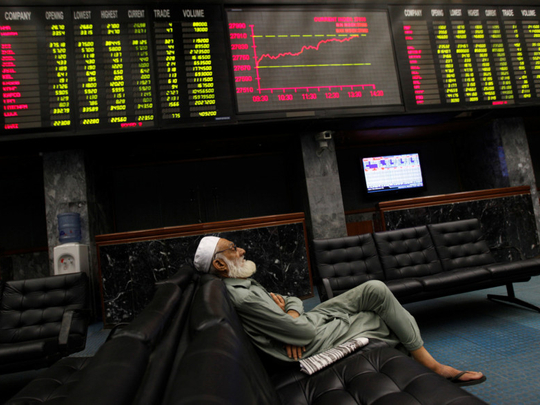
As a fast-growing emerging market and a major economy within the countries of the Organisation of Islamic Cooperation, Pakistan has a mature financial industry that, in the recent past, has been focusing on broadening the Sharia-compliant sector in a country with more than 190 million people.
While steps to implement interest-free banking were implemented as early as the late 1970s, and, from 1985, all commercial banking in rupees was made interest-free, the success in the Islamisation of the country’s banking industry remained limited due to the lack of a real legal framework for the industry and too few products.
However, Islamic finance is expected to take off in Pakistan in coming years due to new regulations on Sharia-compliant banking, new industry-supporting regulatory bodies, as well as rising demand from foreign investors and the large Muslim population, experts suggest.
According to the latest Global Islamic Finance Report, growth of Islamic banking in Pakistan has been at a cumulated 30 per cent over the past five years, which is above the average global rate. If this trend continues, it can be expected that by 2017 Islamic banking assets in the country will be worth $17.6 billion (Dh64.6 billion).
This growth is supported by the strategy of the State Bank of Pakistan, which seeks to double the number of Islamic banking branches from about 1,200 and increase the market share of Sharia-compliant banking from around 10 per cent to at least 15 per cent before the end of the decade. Some economists say Islamic banking could potentially gain as much as 20 per cent of market share in the medium term, which would make Pakistan an important global player in this sector.
Potential gains
“In fact, 15 per cent is a modest aim,” Mohammad Humayon Abbas Dar, Islamic economist, Sharia consultant and founding editor of the Global Islamic Finance Report, is quoted saying in a Pakistani newspaper. “Indeed, if Islamic banking in Pakistan fails to achieve 20 per cent share in the market by 2018, by all indicators, it has failed to reach its potential.”
Mohammad Shoaib Ibrahim, CEO of Karachi-based Islamic finance service provider First Habib Modaraba, wrote in an article for Islamic Finance News, “Presently, the Islamic financial services industry of Pakistan consists of Islamic banks, microfinance banks, Islamic mutual funds, modaraba [Islamic asset management] institutions, takaful companies and Islamic real estate investment trusts.
“The branch network of Islamic banks is continuously expanding throughout the country at a fast pace and catering to the demand for Sharia-compliant banking products.
“The State Bank of Pakistan has played a leading role in further promoting and developing Islamic banking within the country on sound footings.”
Among the central bank’s actions were the introduction of the Sharia Governance Framework for Islamic Banking last year, which clarifies the roles and responsibilities of various units of Islamic banking institutions. It also launched a centre of excellence to groom the highly skilled staff the Islamic finance industry needs.
Pakistan’s Ministry of Finance in July announced a 2 per cent income tax cut for all Sharia-compliant listed manufacturing companies, hoping more would switch their business accounts from conventional banks and that their employees and associates would turn to Islamic banking as well.
Awareness building
The Securities and Exchange Commission of Pakistan, which supervises all Islamic finance service providers other than banks, for its part set up the Islamic Finance Department, which regulates and oversees this Islamic capital market sector. The department’s support in product development and promotion of market awareness have helped reorganise the Islamic capital market and has been a boost for Sharia-compliant finance service providers, Islamic finance products and market instruments.
On a larger scale, the government has been stepping up its use of Sharia-compliant financing to fund infrastructure deals, mainly in energy and transport. This April, banks arranged a ten-year sukuk worth $955 million for a hydropower plant, the largest energy deal using Islamic financing in the country.
Ishaq Dar, Finance Minister, says the country wants to make Islamic finance its “first choice” for infrastructure and long-term financing needs and shift up to 40 per cent of its debt financing to Islamic sources from conventional ones. This includes infrastructure projects worth $45 billion planned by the government in partnership with China to establish the China-Pakistan Economic Corridor, the largest infrastructure programme for Pakistan to date.







